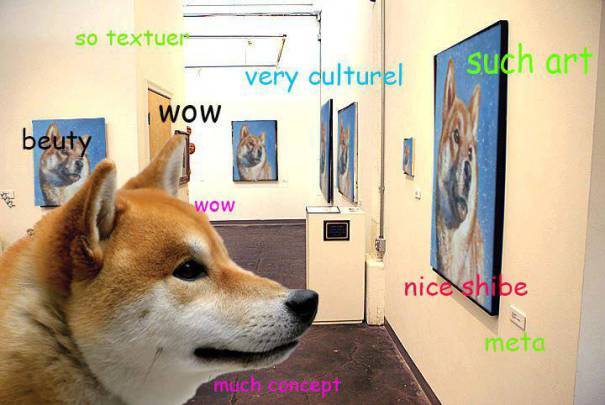
(Illustration from: http://ofdoge.wordpress.com/2013/12/05/art-doge/, copyright the artist.)
Critical Coins, 2015, Counterparty Dogeparty Tokens.
To make the process of art reviews and criticism more transparent and quantifiable, we can use cryptographic asset tokens to represent critical opinion and valences.
Critical Approval
Here’s a token of simple, uninflected critical approval:
Positive and Negative Critique
Positive-only measures can distort valences. Having tokens both for approval and disapproval addresses this:
Star Ratings
We can use a range of tokens to express a traditional star rating:
Sending Tokens
We can use three different kinds of recipients for critical opinion represented in the form of tokens. If the artist (or work) has a Dogecoin address the tokens can be sent to that address directly. Otherwise we can create (preferably a vanity) address for them to hold the tokens in escrow. Or we can create an unspendable address (again preferably a vanity address) to send the tokens to. This prevents the tokens being transferred, which is either a bug or a feature depending on whether we want this to be possible or not.
Presumably art is the product of aesthetic competence, and if I as an art historian or critic approve of your exercise of this competence I cannot fault you if your exercise of that competence in the evaluation of someone else’s art or critical competences leads you to transfer the tokens of my critical approval to a third party. So transferable tokens make sense and in fact the history of their transferals adds value, it provides a historical record of regard, influence, and my original opinion.